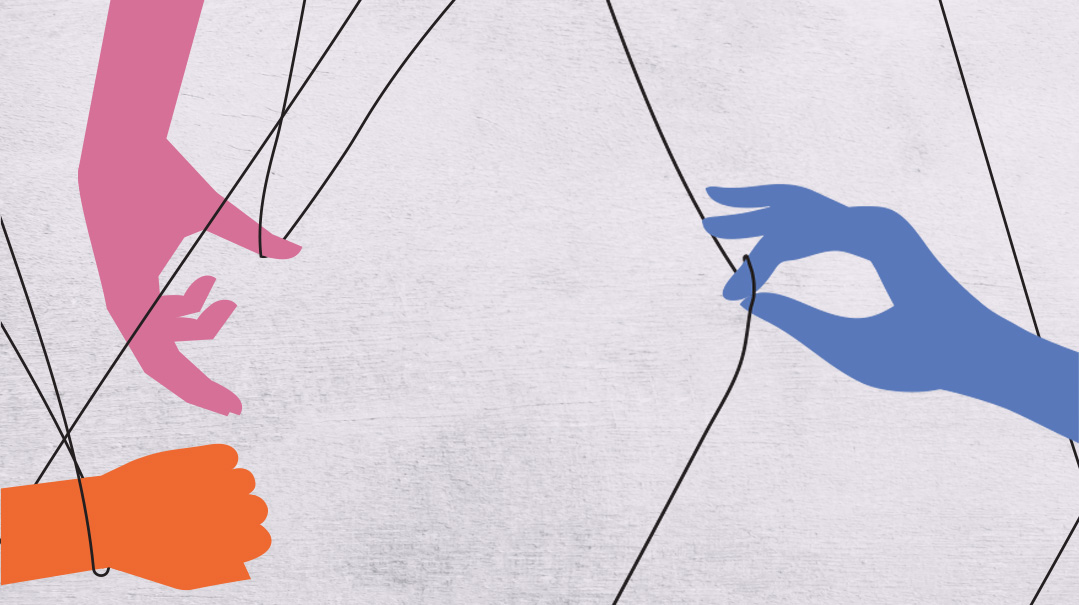Fallout: Chapter 33

Stop thinking so much about your own problems, Annie. Think about Moey

July 1964
Annie pressed the buzzer on the side of the locked metal door. A nurse in a stiffly starched uniform stepped out, firmly closing the door behind her, before Annie had a chance to peek in.
“Yes?”
“Hello. I was wondering if we could possibly....” Annie tried an ingratiating smile, but the nurse’s expression, like her uniform, remained starchy. “That is, if I could see what your neonatal ICU looks like.”
The nurse, glancing at Annie’s dress, softened a little. “Don’t worry, dear, almost all births are fine, you won’t be needing the NICU. And I’m sorry, only parents are allowed inside, and only during visiting hours.”
She turned away, but Annie wasn’t going to relent so easily. “In that case, may I speak with Dr. Sloan?”
“You’ll have to speak with his secretary,” she said briskly, the impatient voice of a nurse who had far too much to do to waste time with nervous women. “Down the hall, to your right.” The brisk voice took on a human note. “It’s normal to be anxious about a first birth, but don’t you worry.”
She disappeared into the NICU right before Annie burst into giggles.
“First birth, huh?” Moe joined in the laughter.
“Thank heavens for makeup.” Then she sobered up. “Come on, let’s try for Dr. Sloan.”
DR.Sloan’s secretary, too, was dubious about two people coming without an appointment, but when Annie said the magic words, “Please tell him I’m Dr. Abraham Levine’s wife,” they were immediately escorted into his office.
With his white hair and kindly smile and a black leather bag on the floor next to his desk, Dr. Sloan looked like an old-fashioned country physician, the kind who could come to someone’s house to deliver a baby, set a broken leg, or mix up a herbal brew for a bad case of bronchitis. But his eyes were shrewd and, as a pediatrician’s wife, Annie knew that the medical textbooks on his desk and bookshelf were the most up-to-date available.
He gave Annie and Moe a cordial welcome, didn’t ask any embarrassing questions about why they were there, and soon Dr. Sloan, Annie, and Moe were walking through that forbidding metal door.
The air hummed with the soft whirring of machines and frequent beeps. Annie had spent a lot of time in hospitals with her Aunt Cele, but the atmosphere in this large, spotless room was very different. Here there were no bustling nurses, chatty visitors, or patients moaning in pain — just staff working quietly, many of them bent over the transparent squares that housed their tiny patients.
“Incubators are like protective cocoons,” Dr. Sloan explained comfortably; clearly, he’d given this speech many times before. “They provide a controlled environment, maintaining the right temperature, humidity, and oxygen levels crucial for these premature infants. We try to duplicate the conditions these little guys and gals would have in the mother’s womb, if they hadn’t been so impatient to leave.”
Almost unconsciously Annie placed a reassuring hand on her own stomach. Stay with me, little one, safe and warm, until it’s time.
The group walked over to one of the incubators. “Little Emily here was born at thirty-two weeks. She was a cute little tyke, but she couldn’t yet breathe on her own. Mommy will be taking her home, we hope, in the next few weeks.”
His voice changed, his words no longer the smooth and practiced shpiel he gave potential donors. There was passion in this voice, passion tinged with an unspoken appeal. “Mrs. Levine, without our NICU, Emily would not have survived childbirth. We’re a small hospital, but this new NICU is state-of-the-art. We need the best doctors here to help these premature infants and sick newborns live full and healthy lives.”
Dr. Sloan continued the tour, explaining the function of the tubes and monitors and other complicated equipment, but Annie hardly heard him. Her eyes kept turning toward the baby, little Emily, with her delicate and almost translucent skin, the baby bracelet that seemed so big on her tiny but perfectly formed hand, the oxygen tube taped to her face, dwarfing her exquisite little nose. And her eyes, little staring dots that reminded her that this was not a dolly; this was a human being, a masterpiece created by a generous and loving G-d, who in His kindness had taught doctors how to give her a chance at life.
The tour came to an end. Dr. Sloan politely offered them a cup of coffee; they politely declined. He did not ask any questions, Annie did not offer any answers.
Because she had none yet.
With a smile at the still-starchy nurse and a silent prayer for little Emily, Annie slowly left the NICU.
“So where to next?”
Annie took a quick glance at her watch. The morning had certainly raced by. “Time to go. I’ve got to get home in time for the kids.”
“Lots to think about.”
“Yup.”
They drove silently for a while, Moe trying to remember to keep to the right side of these quiet country roads, Annie enjoying the vast greenery surrounding them.
Moe finally spoke. “Impressive place, that NICU. Except, maybe, for the scary nurse.”
A grin. “But think about how nice she was to a newlywed expecting her first.”
Their laughter broke the meditative quiet. “Are you going to tell Abe about the visit?”
“Of course.”
“And…?”
“And I don’t know, Moey. What a few months it’s been…. The baby, Artie leaving college, Mutty enlisting, you coming back from England. So many changes.”
“Well, Sis, change is part of life. Like it or not.”
There was a wistful sadness in his voice that startled her. Stop thinking so much about your own problems, Annie. Think about Moey.
She would have to tread carefully. Growing up, Moe had seldom spoken about his feelings. It was little girls like his younger sister who shed tears; a crybaby, as he would call her, with all the scorn of a ten-year-old boy. And he hasn’t changed very much, when it comes to talking about himself.
“Do you mind if I ask you a question?”
“Ask away.”
“Do you miss Rob a lot?”
Moe didn’t take his eyes off the road. “Yes.”
You can’t fool a sister: Annie sensed the depth of emotion behind that one word.
Time to ask The Question. “Moe… do you ever think about remarrying?”
Driving the Caddy, Abe had once told Annie, was a little like surfing a wave; the car, like the surfboard, seemed to respond to every slight motion, every passing feeling of its driver. Annie had laughed it off at the time, but here it was: She could almost sense the car surge forward, its engine giving off a mixture of tension and power as it fought against the wind.
“No.”
You’re not a yenta sticking her nose into someone’s business, you’re his sister. Keep going. “May I ask why not?”
The automobile slowed down; Moe sighed. “Rob and I, we weren’t like you and Abe. You two, you hardly ever fight, right? And you give in to him, Annie. Look at you now, ready to give up the place you love so that Abe can be happy.”
“It’s not quite like that,” Annie said, a touch defensively. “It’s not about giving in. It’s like… when you break a leg, the whole body feels it. I can’t be happy, if someone in my family is not.”
“You’ve always been a tzadeikes, Annie.” Moe gave a light laugh. “Rob, she was no angel like you. And as I’m sure you’ve noticed, neither am I. She and I could go at it, hammer and tongs sometimes. But we worked together, we raised her younger brother and sister, we laughed and we fought and we laughed some more. In a strange way she completed me and, I like to think, I completed her. When she died, Annie, it wasn’t a broken leg. It was an amputation.”
Annie shuddered at the image. “So….”
“So, another marriage, it’s not for me. I suppose I’ll be like Papa, married once, loyal to Mama’s memory.”
Loyal to a memory, not to a wife. And Papa had me and Moey. Who does Moey have? Rob’s brother and sister, already married and living thousands of miles away?
But he has me. And he’s wrong. He needs a wife.
“Okay, Moe, let’s change the subject. I gave you unwanted advice, now it’s your turn. Moey, should I move to the Catskills or not?”
IT
was a day of dreams and magic.
In New Jersey, the Mustang flew past beachfront towns and oil refineries. Marjorie was joyously oblivious: The word “freedom” seemed to rise from the asphalt highways, endlessly repeated with every revolution of the Mustang’s whitewall tires. When she gaily passed outraged drivers — left lane, right lane, right lane, left lane — she heard the music of freedom in their furious honks. Every inch, every yard, every blessed mile taking her away from a home she detested, a future she dreaded.
Her map, her Mustang; her lucky star at its apex.
Mama Mumu didn’t count: She sat in a quiet reverie next to Marjorie, hardly moving. She didn’t comment when Marjorie barely missed an 18-wheeler, didn’t flinch when the truck’s air horn rocked their car.
In Pennsylvania, hunger set in. Marjorie turned off the highway, following road signs to Gettysburg. In the shadow of the Civil War, surrounded by blood and death and history, they ate sandwiches out of Mama Mumu’s duffel bag, exchanging smiles but few words.
Hour after hour, mile after mile, state after state — Pennsylvania turned into Ohio, which blended into Indiana and ran into Illinois. The bright summer sun had long since set as they reached the outskirts of Chicago, more than sixteen hours after they’d begun their journey. The bright neon lights of a cheap motel beckoned: Even a freed slave needs some sleep.
Marjorie awakened in late morning, seeing Mama Mumu standing over a small camping stove, stirring a pot of oatmeal.
Yesterday, as Marjorie had cast off her suburban existence like a snake shedding its skin, the few months spent in the Freed Hotel had also vanished from memory. But now, as she blinked herself into wakefulness, she began to sing:
Boker Tov, Boker Tov
Wake up, wake up, it’s almost eight!
Boker Tov, Boker Tov
Wake up, wake up, or you’ll be late!
Modeh Ani, Modeh Ani
Thank You, Hashem, that’s what we say.
Modeh Ani, Modeh Ani
Thank You, Hashem, for a great new day!
Hashem, Marjorie thought in puzzled surprise, seemed to have joined her on this journey.
She wasn’t sure if she should welcome Him, or send Him back to Coney Island.
A
nnie’s morning in the Catskills had been busy, the afternoon even more so. Yet while an experienced housewife is shopping, cooking, and, especially, kneading the dough for her challos, she has time to think, to ponder, to dream, and to plan.
Abe came home late: three after-hours house calls. When he finally got home at eight, the twins were out playing ball, Ruchele was asleep, and a hot meal was waiting for him.
Annie served him a steaming bowl of mushroom and barley soup, his favorite.
“Abe,” she said, settling down at the kitchen table next to him, “we’ve got to talk.”
To be continued…
(Originally featured in Family First, Issue 877)
Oops! We could not locate your form.



